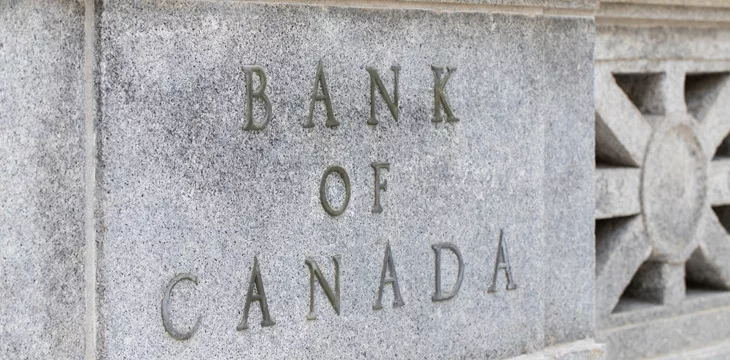|
Getting your Trinity Audio player ready...
|
The Bank of Canada has launched an in-depth assessment of decentralized finance (DeFi), shedding light on the benefits and risks posed to the global financial system.
The bank published a staff analytical note, describing DeFi as a multi-layered structure with a settlement and an application layer, relying on smart contracts to offer users various financial services. The report cited certain flaws in traditional finance for the rise of DeFi in recent years, such as limitations in cross-border payments and expensive transaction costs.
A key feature of DeFi is the absence of third parties or intermediaries that typically clog the wheels of processes in the financial system. For the Bank of Canada, DeFi offers several benefits, including increased service offerings stemming from a unified ledger and increased transparency.
The central bank cites the low barrier of entry into DeFi as a critical feature necessary to increase competition in the ecosystem, which may “reduce market power and concentration.” The report also cited DeFi use cases in cross-border payments and securities settlements but warned of existing pitfalls.
For all its benefits, the analytical note highlighted several flaws associated with DeFi use, including limited tokenization, unregulated centralized entities, and increased interconnectedness in the system.
Per the report, only a handful of real-world assets have been successfully tokenized, with DeFi’s impact in the real-world economy described as “minimal.” The Bank of Canada warned users of the spillover risks associated with a potential shock to key protocols in a highly concentrated DeFi ecosystem.
Apart from the technical concerns associated with DeFi, the central bank pointed out regulatory challenges facing the system. The report specifically mentions the regulatory complications arising from the borderless and anonymous nature of blockchain and the new points of failure stemming from the use of cross-chain bridges and price oracles.
“New amplification channels such as flash loans allow malicious actors to acquire billions of dollars in funding without any credit checks or collateral requirements,” read the report.
Bank of Canada keeps an eye on CBDCs
The Bank of Canada has been paying attention on central bank digital currencies (CBDCs), releasing several analytical notes over the last year.
In the latest report, the central bank identified global barriers to an inclusive CBDC, noting that a large demographic may need help adopting digital versions of fiat currencies. The central bank has previously explored the possibilities of an offline CBDC but warned of limited adoption levels in the future.
“Most importantly, however, the consumers who would have gaps in meeting their payment needs are a small share of the market,” read a report in August. “Therefore, even if they were to adopt and use CBDCs early in the process, it would probably be insufficient to encourage widespread merchant acceptance.”
To learn more about central bank digital currencies and some of the design decisions that need to be considered when creating and launching it, read nChain’s CBDC playbook.
Watch: CBDCs and BSV

 07-03-2025
07-03-2025 





